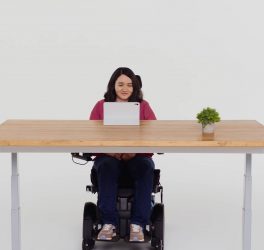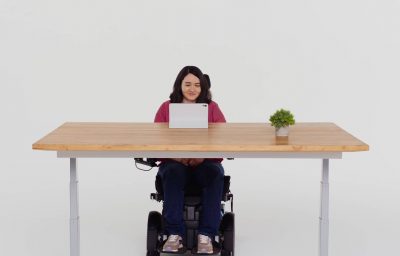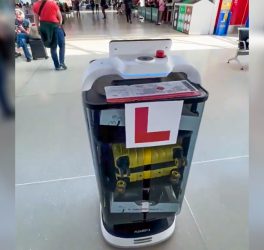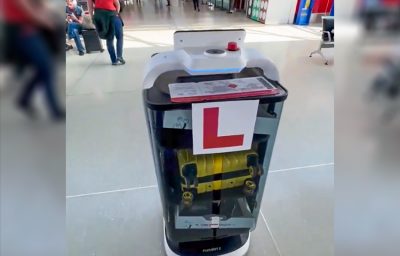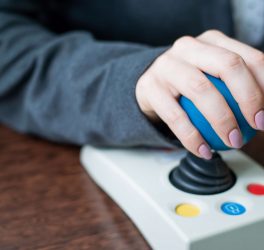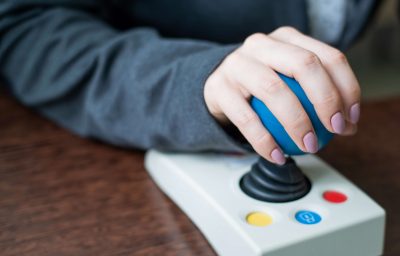
Amidst the resurgence of COVID-19, the Global IT Challenge for Youth with Disabilities (GITC) will be held non-face-to-face this year again.
The Global IT Challenge Organizing Committee (GITC O.C.), composed of the Ministry of Health and Welfare, LG, LG Electronics and Rehabilitation International Korea (RI Korea), announced on the 8th, “Even though COVID-19 is still threatening throughout the world, we decided to continue the uninterrupted event for youth with disabilities to prepare the foundation in order to improve their ICT ability and opportunities for entering into society, including learning and getting jobs.”
In the Global IT Challenge 2022, which will mark its 11th anniversary, 400 youths from 16 countries, ranging from 14 to 23 years old, with visual, hearing, physical, and developmental disabilities are participating in the Preliminary Round.
Youth will demonstrate their IT abilities for the first time in the Preliminary Round, which will be held at the Eroom Center in Yeouido for two days, on Aug 10-11. About 350 youths who passed through the Preliminary Round will undergo additional training for three months, and then compete in the Final Round which will be held at Glad Hotel in Yeouido over two days, on November 15-16.
Earlier, the GITC Organizing Committee set up an ePlatform (www.globalitchallenge.com), with the first non-face-to-face event last year as an opportunity. If the participants submit applications via this platform, everything from managing their histories, to IT education (eLearning), and setting and scoring problems, can be done online.
The GITC Organizing Committee selected a total of six competitions for this year, including three individual and three applied competitions, in which participation is possible either as an individual or as a team. In particular, ‘eCreative_IoT Challenge’ was selected as a new competition, reflecting the latest technology trends.
The participants will take on three individual competitions: ‘eTool_PPT Challenge’ to evaluate the skills to make and edit presentation slides using PowerPoint; ‘eTool_Excel Challenge,’ to evaluate the skills to utilize functions, calculate and edit data in given conditions using Excel; ‘eLifeMap Challenge,’ to evaluate the skills to search and utilize information dealing with problems of daily life using Internet.
They will also compete, either as an individual or as a team, in ‘eContents Challenge,’ to evaluate the skills to make and edit video dealing with specific topics creatively; ‘eCreative_Smart car Challenge,’ to evaluate the skills to use Scratch program for self-driving car programming(coding), ‘eCreative_ IoT Challenge,’ to evaluate the skills to make life more convenient for persons with disabilities through IT or appropriate idea. For these three applied competitions, the participants will work within the two weeks given and upload their files on ePlatform. Then, excellent works will be broadcasted on the day of the event.
This event is hosted by the Ministry of Health and Welfare and LG and sponsored by the GITC Organizing Committee and LG Electronics. All the events can be seen in real-time on YouTube.
Daesik Yoon, Executive Director of LG Electronics, remarked, “The long-lasting COVID-19 pandemic rather becomes an opportunity to realize the importance of accessibility to information using IT. I hope that this event becomes an opportunity for youth with disabilities around the world to realize their dreams and passions and share friendships under difficulties. LG Electronics will continue to fulfill its corporate social responsibilities so that any youth with disability can communicate with the world equally and conveniently using IT.
According to Inkyu Kim, chairman of the GITC Organizing Committee, “It turned out to be the case through experience of the past two years that youth with disabilities are excluded and receive unfair treatment more frequently in the non-face-to-face era. However, I hope that they will take on greater steps through this GITC, since IT has been proven to transcend all barriers to youth such as nationality or region.”
He continued, by adding, “We will give our best to make relevant preparations so that our event can become an IT event approved by the international community by reinforcing its standardization and fairness ─ such as a way to operate games, or the event operation regulations, and the automatic scoring system.”
The Global IT Challenge began through RI Korea holding the IT competition every year from 1992 to narrow the digital divide of youth with disabilities in Korea. Since then, it became an international event, while holding events in the Asia-Pacific region with LG Electronics from 2011. The fact that about 4,000 youths with disabilities from 28 countries participated during the past 10 years shows that the international community is also paying attention to the Global IT Challenge.
In this regard, domestic and foreign officials evaluated that the Global IT Challenge has been providing opportunities for youth with disabilities to develop their ICT capabilities and enter into society, such as entering school and getting a job, in preparation for the digital era. It presented a successful model for implementing an international disability framework, such as the UN Convention on the Rights of Persons with Disabilities, SDGs and Incheon Strategy, by building close partnerships, centering on IT, between the government of a host country, the Korean government, a corporation and an association of persons with disabilities.

